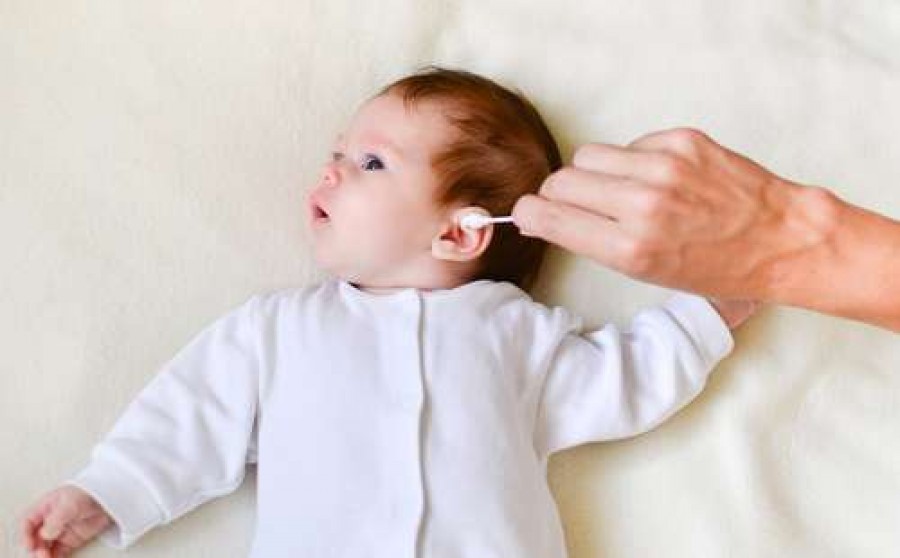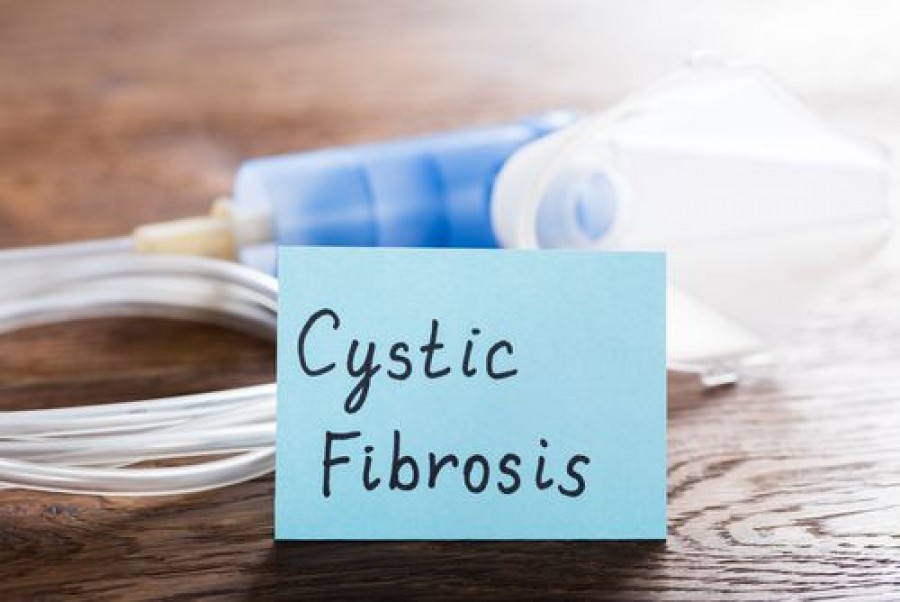Dealing With Baby Inner Ear Infections

Inner ear infections (Otitis Media) occur frequently and commonly, especially in children under three years of age. This infection is typified by infected fluid getting trapped behind the eardrum following a case of any cold attack, sore throat infection or allergies.
Since babies are typically unable to speak, they’re unable to communicate with their parents to let them know what’s causing them pain – so there’s a few signals they give instead to let others know of their misery. For parents, it’s important to understand these signals to help their baby, so that the infection can be treated sooner rather than later.
Babies do have a very weak immune system, so recovery may take longer – and it may lead to serious health issues if not caught early enough.
Symptoms of Inner Ear Infection
Every baby is different, so not all the following symptoms may be present during an inner ear infection.
Fever
Although a fever is not likely affiliated with an ear infection in babies, it should still be taken into consideration for severe respiratory infection. A fever can cause the nose of your baby to be stuffy and if not taken care of in the early stages, then it might also reach the ears and cause further damage to the health of your baby. A baby should be regularly monitored for a fever, whether they have a minor indication of a temperature or the baby cries a lot, this can help narrow down the potential of an ear infection.
This can be best achieved by using by a digital thermometer, that is placed under the tongue, armpit or anus of the baby, or an ear thermometer, that give a quick and comfortable measure of the baby’s temperature. Other devices also include a forehead thermometer that are swiped over the head of the baby that measure the temperature of the major vein located there.
Trapped fluid
Another major give away to a potential ear infection in babies include trapped fluid behind the ear drum that causes inflammation in your baby’s middle ear. If you look closely inside their ear with a light, it may appear to be red and swollen. This indicates that your baby’s ears are clogged with fluid that has either developed naturally, or has been pushed in with the use of q tips in the baby’s ear. The use of Q-tips in babies should be kept at a minimum as the improper usage of a q tip a baby’s ear can damage the baby’s ear and/or ultimately cause an infection.
Yellowish fluid
In regards to fluid discharge in babies, in severe cases you might also notice that a yellowish fluid is coming out of your baby’s ear(s). This red flag indicates your baby either has an ear infection or is on the verge of getting one. You might see the fluid leaking out of your baby’s ear overnight or it might be hardened and clogged up against the walls of your baby’s ear.If this is the cause, then you should not try to remove it with a q tip.
The use of a q tip might further damage your baby’s ear. You should instead just clean the outside of your baby’s ear with a soft tissue, not going inside the ear canal and visit your paediatrician as soon as possible.
Crying
You may see a change in your baby’s behavior; they may appear to become more irritable, crying more frequently or consistently due to pain and itchiness of rashes and blisters as well as because of fever. Your Baby might also not react to you as well as he/she does normally. This might include not playing with toys, not react to the noise of a rattle, etc. The infection would be itchy and painful, so they might also pull at their ear frequently to relieve the sensation, but you should stop your baby from going anywhere close to their ear as it might cause further damage to the ear.
Reduced appetite
Your baby might not drink and eat well. Ear infections can cause gastrointestinal upset which means that it causes your baby to have an upset stomach. Your baby might also face trouble chewing or swallowing. You might also notice your baby pulling away from the breast or the bottle after taking the first few sips.
Lack of activity
Due to the amount of pain and stress your baby is going through, they might appear to be feeling tired and drowsy. Your baby might face difficulty in hearing, sleeping or moving. Although this might not be a straight giveaway, it does help parents with highly energetic babies that crawl their way through the entire house. If your baby is less active than usual, you should not be that worried. However, it is a good idea to check for any other possible symptoms of an infection in your baby.
Diarrhea/ Vomiting
Your baby’s upset stomach impacts your baby’s digestive system; some babies may also face diarrhea and/or vomiting. The bug that causes the ear infection affects your baby’s gastrointestinal tract causing your baby additional internal pain. Through this entire process, your baby should be kept as clean as possible to prevent any further infections.
Causes of Inner Ear Infection in Babies
There are several reasons behind catching such infection, but whether it’s a bacterial or viral infection is all related to your baby having a weaker immune system. Depending upon your baby’s health condition, several factors can impact their health negatively.
Some babies get this infection due to exposure to smoke. Smoke is very hazardous to anyone’s health, but it is especially more harmful for very young children.
Exposure to dust may also cause this infection into babies, as it blocks the Eustachian tube which prevents it from draining properly. Similarly, exposure to other children who have infections may also be the cause; day care centers and playgroups typically allow children to be exposed to a range of germs and illnesses at an early age, and allows diseases and infections to quickly spread amongst the group.
Some parents use a dummy or pacifier to sooth and calm their baby. Use of this can also be the cause of developing some allergies and such infections in babies.
Treatment of Otitis in Babies
Depending upon your baby’s condition and type of infection, your doctor might suggest some antibiotics for your baby. However, it’s the general view that babies typically recover themselves without any medication in three days or so. This is because taking medicine unnecessarily can make bacteria resistant, and antibiotics may not help your baby recover.
Usually doctors do not prescribe any antibiotics for babies under two years of age – however, depending on the situation and the baby’s condition, such as in the case of a very high fever, a doctor may recommend medication to manage symptoms. Over-the-counter medication, such as Panadol, can be used to help relieve pain and manage fever, and it is highly recommended to give dosage as per written instructions, or pharmacist’s suggestions.
A warm compress can also be applied to the ear to relieve pain for around five to ten minutes, or for as long as your baby feels comfortable.
Other tips include:
Hydration
Giving your baby lots of liquid to prevent dehydration is an effective way to help your baby recover faster. The act of swallowing can also help to open the Eustachian tube, which will help drain trapped liquid from the ear canal, and you should also keep your baby’s head elevated to reduce blockage of sinus fluid.
Ear drops
Some people may try applying homeopathic ear drops into baby’s ears to help reduce inflammation and pain. These ear drops contain natural ingredients such as garlic, lavender, olive oil, etc. These ear drops can help clear your baby’s ear, but the infection itself might take a few days to heal properly.
Nutrition
If your baby avoids food or drink due to pain and discomfort, then you must try feeding your baby anything soft with tricks such as feeding with syringe – your baby needs energy to help fight the infection, so you should also let your baby rest as much as possible to help them regain their excessive energy lost throughout the day due to the infection.
Cleanliness
Your baby needs to be kept clean to prevent any further infections. Giving your baby frequent baths or putting wet strips of cloth on their forehead can help bring their temperature down and helps to keep them clean.
Protecting your baby from getting inner ear infections
Prevention is always better than cure – so take proper steps in preventing your baby from getting such infections repeatedly.
Breastfeeding can help make your baby’s immunity system stronger, as the mother passes on her own lifelong immunity down to bub through her milk – therefore, it’s highly recommended by health practitioners all over the world to breastfeed your baby at least until six months. Similarly, make sure all your baby’s required vaccinations are done on schedule.
If you have started feeding solids, introduce your baby to a healthy, balanced diet with plenty of nutrients to boost their immunity even further. Make sure this includes leafy green vegetables and soft fruits – nutrient-rich foods that are immunity-boosters.
Also, enforce strong hygiene practices with bub, from frequent bathing, to washing hands after going to the bathroom, and ensuring that all environments are germ-free. This will help your baby recover faster, and will help you avoid future health issues. Try to avoid exposing bub to smoke or dust, which could spark an allergic reaction or attack, especially such allergies are in your family history.
If your child’s immunity is compromised, avoid going out into a crowded environment or where they will be close to others – being so close to other people will make it easier for them to catch and illness or infection.
Helpful Tips(s)
Ensuring a proper diagnosis of the cause of your child’s discomfort is incredibly important, therefore it’s highly recommended that you visit your doctor to determine the source of the infection.
Some children may need antibiotics to prevent infection from spreading to other parts of the body. Take your baby immediately to the doctor if:
- They have high fever (38 Degrees Celsius and above), especially if your baby is very young.
- Your baby’s condition is not improving, even after two to three days, or is getting worse.
- If your baby is crying a lot during the night and unable to sleep at all.


